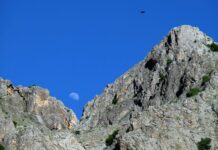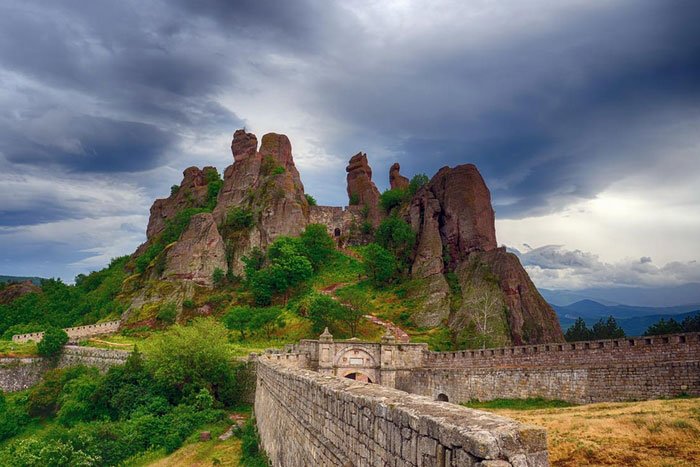Accordingly when the winter was already far spent and spring with its smiles was near, he sent to Epidanmus for his brother-in-law, John Ducas, and appointed him ‘Great Duke’ of the Fleet. He gave him a picked army of landsmen and ordered him to make the journey against Tzachas by land, and to entrust Constantine Dalassenus with the command of the fleet with orders to sail along the coast so that they might arrive at Mitylene at the same time, and start the war with Tzachas conjointly by land and sea.
When Ducas reached Mitylene he at once had wooden towers built, and then, using that town as a base of operations, he began a vigorous campaign against the barbarians. Now Tzachas had left his brother Galabatzes in command of the garrison at Mitylene and, knowing that the latter had insufficient troops for fighting against such a famous warrior, he hastened back thither, formed a plan of operations and opened battle with Ducas. While the battle was at its height night put an end to it.
Emperor grew impatient
From that day on throughout three of the moon’s revolutions Ducas never failed to attack the walls of Mitylene daily nor to engage Tzachas in brilliant conflicts from the rising of the sun to its setting. And yet Ducas gained no advantage from his continual toil. The Emperor grew impatient and annoyed at the news. One day he questioned a soldier who was on leave from the front and found out that Ducas did nothing but fight and fight.
Then he asked at what hour of the day they commenced battle with Tzachas; the soldier replied, ” Directly after sunrise.” The Emperor next enquired, “Which of the two armies faces the East? and the soldier answered, ” Ours.” From that he understood the reason, for he often found the clue in some unconsidered trifle. So he drew up a letter for Ducas advising him to refrain from battle with Tzachas at dawn, and not to fight one against two, i.e. against the sun’s rays as well as against Tzachas himself ; but to attack his adversaries when the sun had passed the meridian and was inclining towards the West.
He handed the letter to the soldier with many recommendations about it, and finally said emphatically, ” If you attack your adversaries when the sun has turned, you will at once be the victors.” The soldier reported everything to Ducas and as the latter never disregarded the Emperor’s advice even in the smallest matter, the next day when the barbarians as usual drew up their lines, none of their opponents appealed. For the Roman troops were remaining quietly in camp according to the Emperor’s suggestion, so the barbarians gave up hope of any battle that day, and laid down their arms and stayed where they were.
Read More about Bruin The Bear And Reynard part 4








